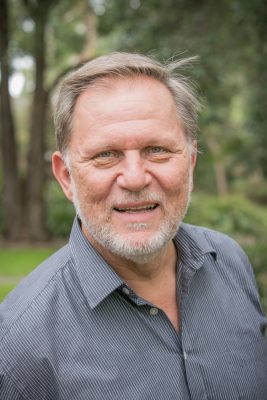Sally (not her real name) walked slowly into my office and chose an upright, less comfortable chair. She took quite a while to find a comfortable posture and then looked at me with eyes that knows suffering. After the normal introductions I asked Sally how I can be of help. She started to speak and then, eyes brimming with tears, she continued to tell me about her struggle with her debilitating, excruciating and seemingly never ending chronic pain. It all started 18 months ago with a cycling accident and subsequent soft tissue injury to her back. The pain however never subsided and is in fact getting worse. Sally stopped cycling, spends a lot of time in her bed and had to resign from a job that she loved. “I am not even half the person I used to be” she said and “I am surprised my husband has not left me”
For most of us, our past experience of injury or surgery is that the pain fades away once we have recovered from the illness or the wound has healed. For people like Sally, who suffers from chronic pain, the pain just continues or just appeared out of the blue and is ongoing. In Australia three out of ten Australians have experienced chronic pain and twenty percent of us live with someone with chronic pain.
It is normal for people with chronic pain to experience a deep sense of loss of the old pain free self. Not knowing what sort of a day it will be makes it very difficult to plan ahead and hard to look forward to a holiday because of the knowledge that the pain will follow you there. It goes without saying that no one ever chooses to have chronic pain. One of the most challenging for us is to accept physical limitations and a body that is not functioning as it is supposed to.
Most people want their pain to be fixed. Many individuals try to fight the pain and believe that with enough tenacity they can break through the pain barrier. Unfortunately this mostly leads to aggravated pain and being worn out. Pain saps energy and all the willpower in the world will not make it go away. Ignoring pain only works in the short term. Chronic pain is tenacious in its ability to make itself known and will eventually be too much of a presence to ignore.
Chronic pain not only robs people of their sense of a wholesome self but often severely restricts their physical functioning and significantly impacts on their lifestyle. Remember Sally ?, her beloved bicycle lived in the shed and her memories of early morning rides with friends felt like a dream.
Living with chronic pain, really living, means that sufferers come to terms with the idea that despite the best efforts of the medical profession it is unlikely that their pain will go away in the foreseeable future. Accepting your pain does not mean that you are giving into it. It means that you adopt a stance of “it is what it is”. Instead of focusing on how badly you want the pain to stop, you accept the pain as is and find ways to continue living.
You need to find people who will take your condition seriously. Talk honestly about how you are feeling and obtain support for your actions to continue living. It may be a family member, your GP or someone at the many specialised pain management clinics (PMC’s) around Australia.
Psychologists are becoming increasingly more involved in helping people with chronic pain to live fulfilling lives. You will discover how to use Mindfulness to pay attention to your pain with inquisitiveness rather than judgement. Cognitive Behaviour Therapy techniques will help you to develop a positive mindset and a Solutions Focused approach will help you to action your plans. Over time you will be able to increase the amount and quality of things you can do. This may be different from the things you did before but your life can be full of meaning and enjoyment again.
Sally discovered that as a person she is infinitely more than her pain. Being curious rather than judgemental about her pain helped her to discover that her pain varies in intensity throughout the day and with good planning and resources many tasks can be accomplished.
You don’t have to be pain free to really live!
Joe is a Clinical Psychologist at Alpha Psychology. He has extensive experience in helping people to manage chronic pain.







